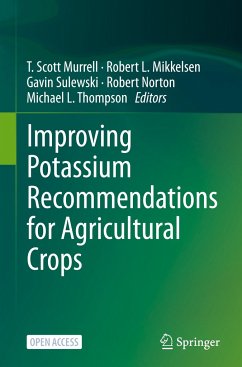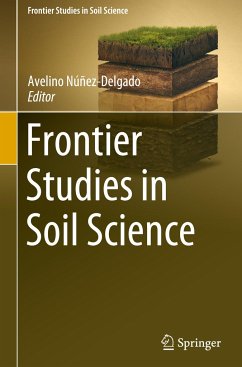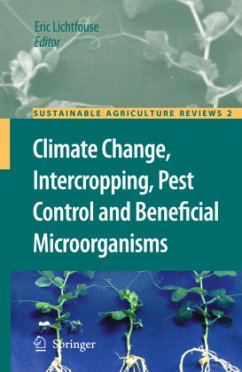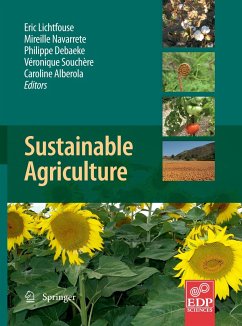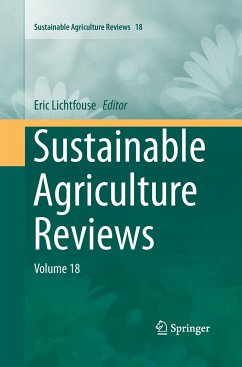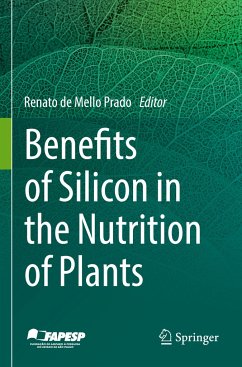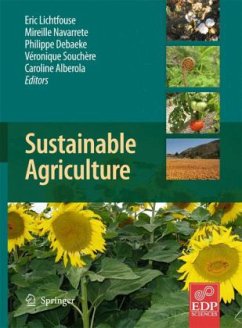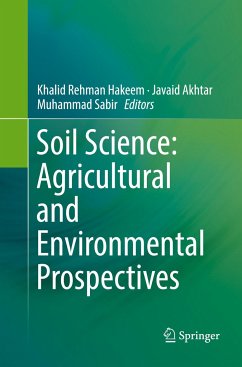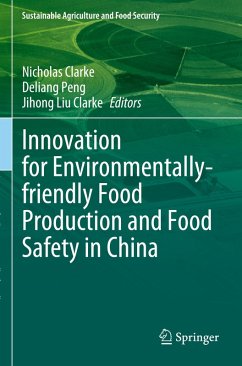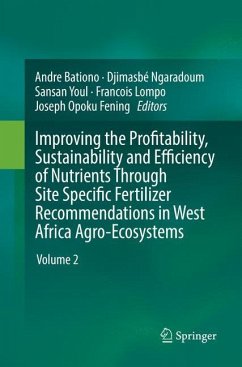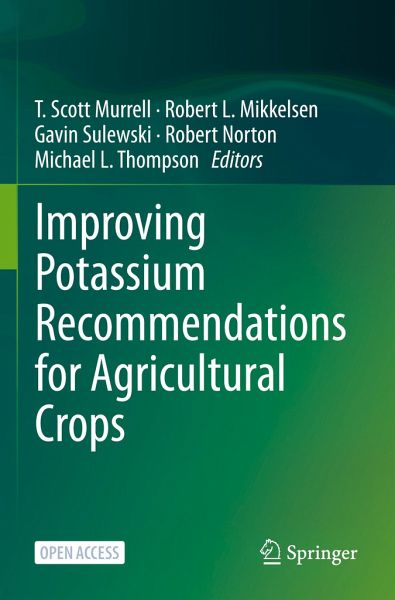
Improving Potassium Recommendations for Agricultural Crops
Versandkostenfrei!
Versandfertig in 6-10 Tagen
31,99 €
inkl. MwSt.

PAYBACK Punkte
16 °P sammeln!
This open access book highlights concepts discussed at two international conferences that brought together world-renowned scientists to advance the science of potassium (K) recommendations for crops. There was general agreement that the potassium recommendations currently in general use are oversimplified, outdated, and jeopardize soil, plant, and human health.Accordingly, this book puts forward a significantly expanded K cycle that more accurately depicts K inputs, losses and transformations in soils. This new cycle serves as both the conceptual basis for the scientific discussions in this bo...
This open access book highlights concepts discussed at two international conferences that brought together world-renowned scientists to advance the science of potassium (K) recommendations for crops. There was general agreement that the potassium recommendations currently in general use are oversimplified, outdated, and jeopardize soil, plant, and human health.
Accordingly, this book puts forward a significantly expanded K cycle that more accurately depicts K inputs, losses and transformations in soils. This new cycle serves as both the conceptual basis for the scientific discussions in this book and a framework upon which to build future improvements. Previously used approaches are critically reviewed and assessed, not only for their relevance to future enhancements, but also for their use as metrics of sustainability. An initial effort is made to link K nutrition in crops and K nutrition in humans. The book offers an invaluable asset for graduate students, educators, industry scientists, data scientists, and advanced agronomists.
Accordingly, this book puts forward a significantly expanded K cycle that more accurately depicts K inputs, losses and transformations in soils. This new cycle serves as both the conceptual basis for the scientific discussions in this book and a framework upon which to build future improvements. Previously used approaches are critically reviewed and assessed, not only for their relevance to future enhancements, but also for their use as metrics of sustainability. An initial effort is made to link K nutrition in crops and K nutrition in humans. The book offers an invaluable asset for graduate students, educators, industry scientists, data scientists, and advanced agronomists.



